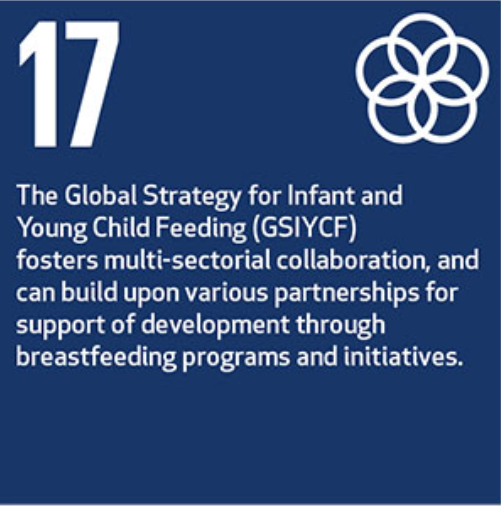1. Poverty alleviation : Breastfeeding is a natural and low-cost way to feed young children. It is affordable to all and does not impose an economic burden on families compared to other artificial feeding methods. Breastfeeding contributes to poverty alleviation.
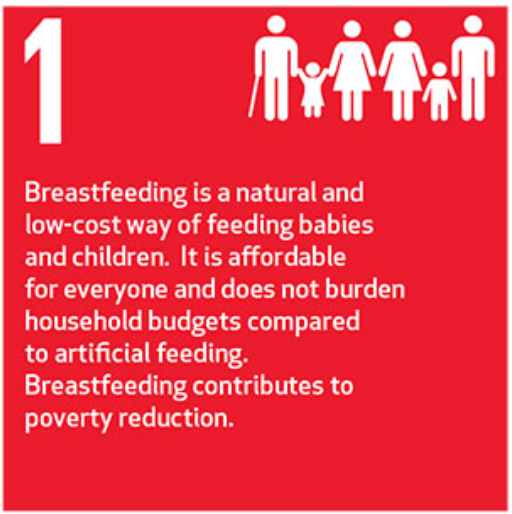
2. Hunger eradication : Exclusive and continued breastfeeding until age 2 or beyond provides high-quality, energy-dense nutrients, thereby preventing hunger, undernutrition, and overweight and obesity. Breastfeeding is synonymous with food security for young children.
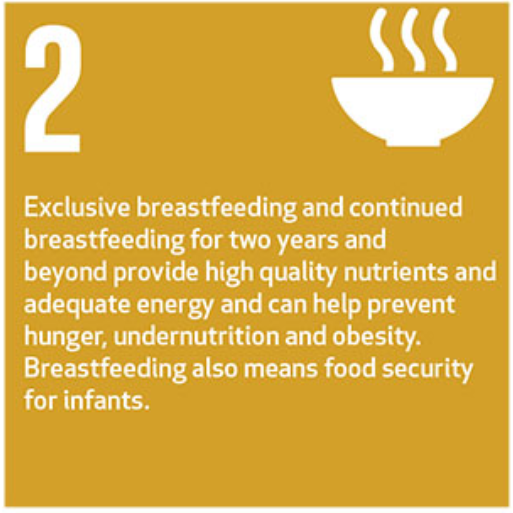
3. Good health : Breastfeeding significantly improves the health, development and survival of infants and young children. It contributes to improved maternal health and well-being in both the short and long term.
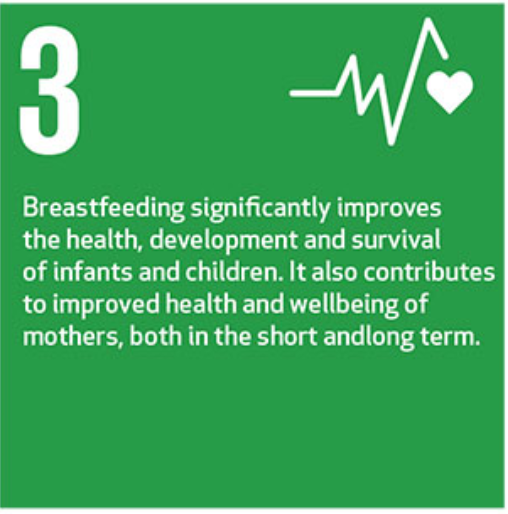
4. High-quality education : Proper breastfeeding and complementary feeding are the foundation for children's learning. Quality breastfeeding and complementary feeding play an important role in children's mental and cognitive development, thereby promoting learning as they grow older.
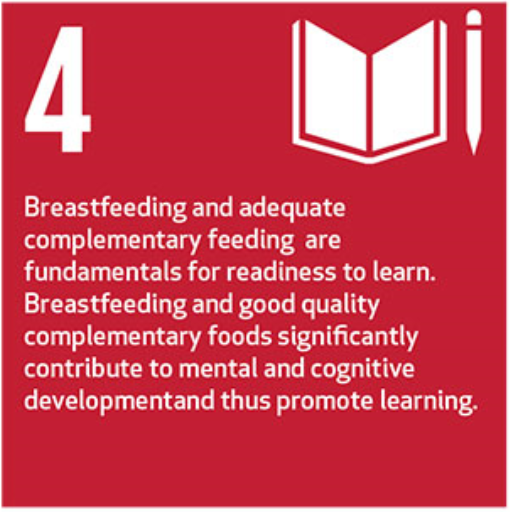
5. Gender Equality : Breastfeeding ensures fairness so that every child has the best and equal start. Breastfeeding is a mother’s right and she needs to be supported by society to breastfeed her baby as best as possible. Breastfeeding is a happy and empowering experience for mothers when they are proactive in feeding their child.
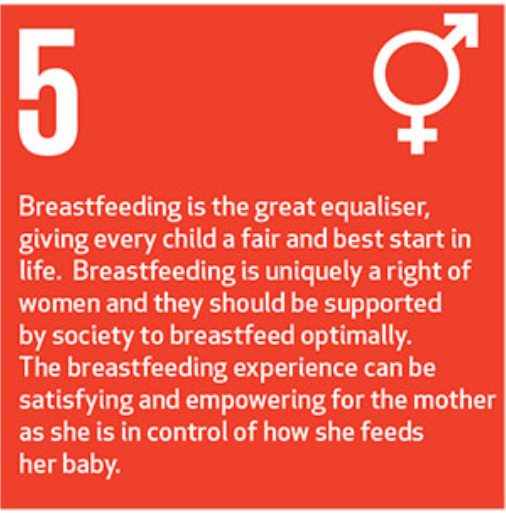
6. Clean water and hygiene : On-demand breastfeeding provides enough water for babies, even in hot weather. In addition, formula feeding requires a clean and hygienic water source.
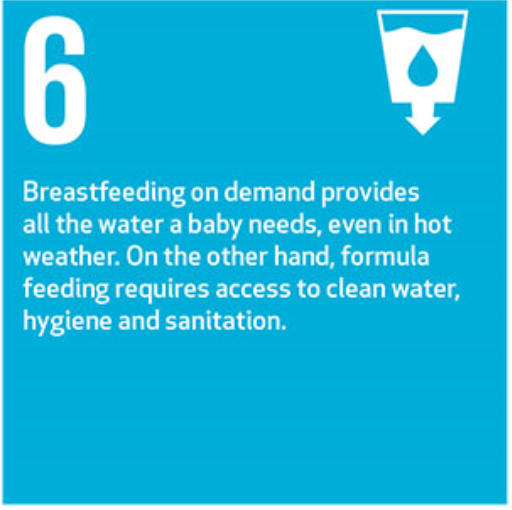
7. Renewable and affordable energy : Breastfeeding requires less energy than formula production. This also reduces the need for water, firewood and fuel at the household level.
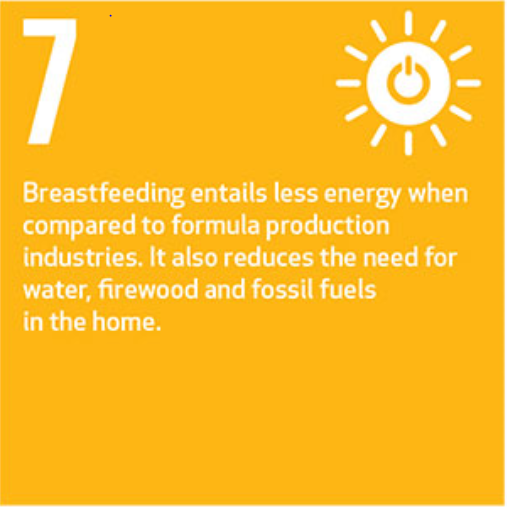
8. More jobs and a healthy economy : Breastfeeding mothers who are supported by their employers are more productive and loyal. Maternal protection and workplace policies can help women who breastfeed hold other jobs and maintain employment. Good jobs need to meet the needs of breastfeeding mothers, especially those in precarious situations.
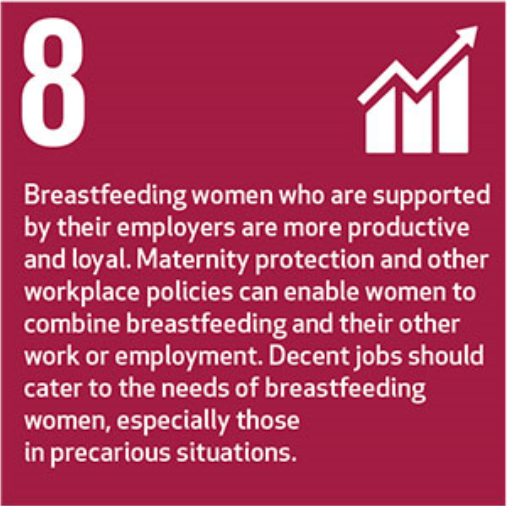
9. Innovation and good infrastructure development : With modernization and urbanization, the challenges of time and space are becoming more evident. Working mothers need to manage these challenges well and need support from their employers, families and communities. Nurseries near the workplace, lactation rooms and breastfeeding breaks will contribute to the change.
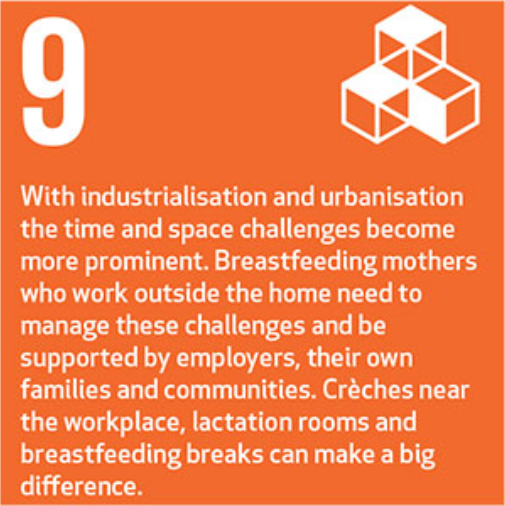
10. Reducing inequalities: Breastfeeding practices may vary across regions of the world. Breastfeeding should be protected, promoted and supported for all, especially the poor and vulnerable. This will help reduce inequalities in society.
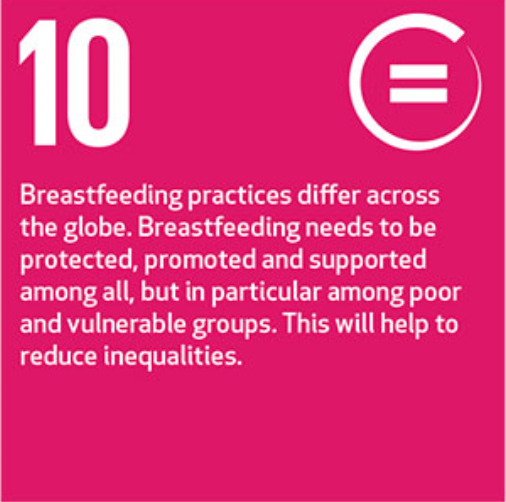
11. Sustainable cities and communities: With the explosion of large cities, breastfeeding mothers and their children need to feel safe and accepted in all public places. When conflicts or natural disasters occur, women and children are most affected. Pregnant and breastfeeding women need special support at these times.
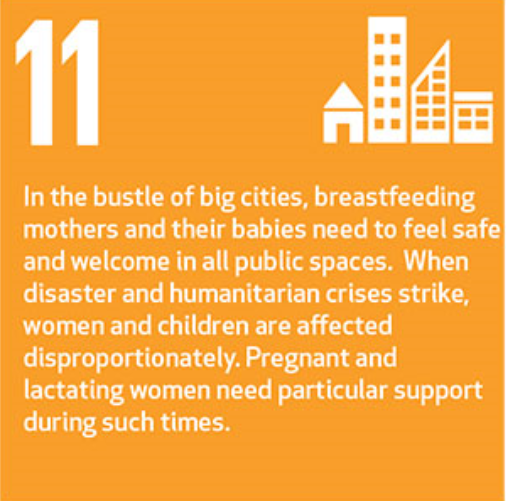
12. Use resources responsibly: NCBSM provides a healthy source of nutrition, is non-polluting, resource-efficient, sustainable and natural.
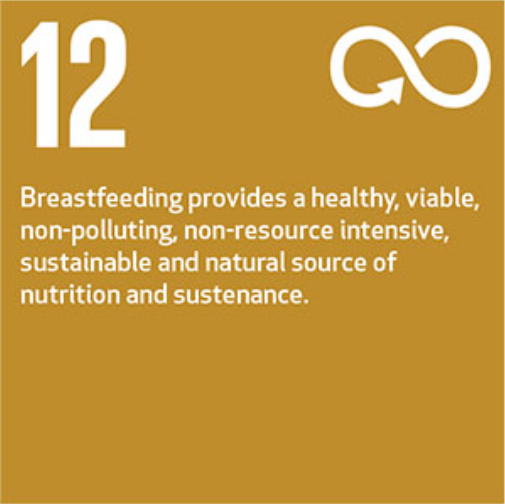
13. Climate Action : Breastfeeding protects the health and nutrition of young children during times of extreme events or natural disasters due to the effects of global warming.
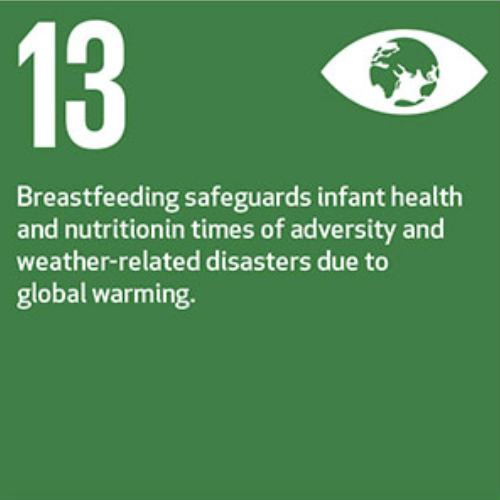
14. Sustainable oceans: Breastfeeding produces less waste than formula feeding. Industrial production and distribution of formula results in waste that pollutes the ocean and impacts marine life .
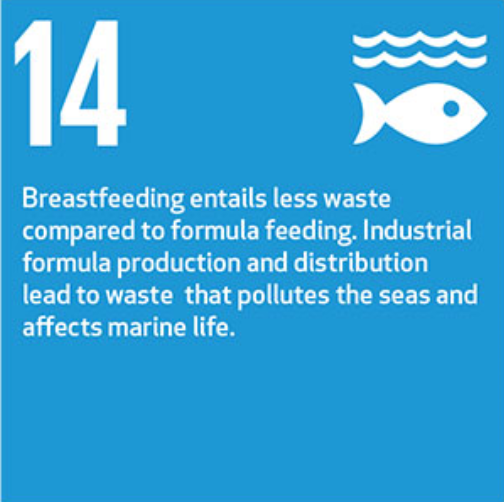
15. Sustainable land use: Breastfeeding is ecologically sound compared to formula feeding. Formula production associated with dairy farms is taxing natural resources and contributing to carbon emissions and climate change.
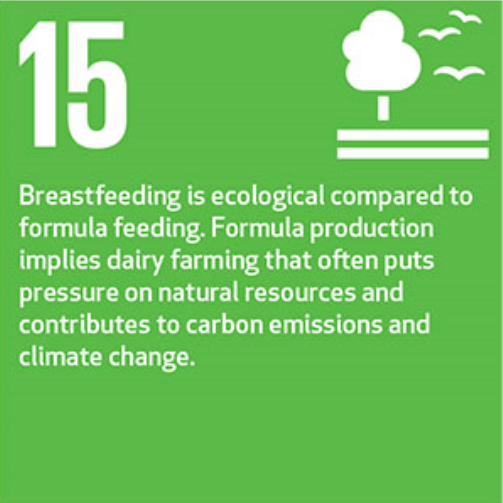
16. Peace and justice : Breastfeeding is enshrined in human rights frameworks and conventions. National laws and policies to protect and support breastfeeding mothers and young children are needed to ensure their rights.
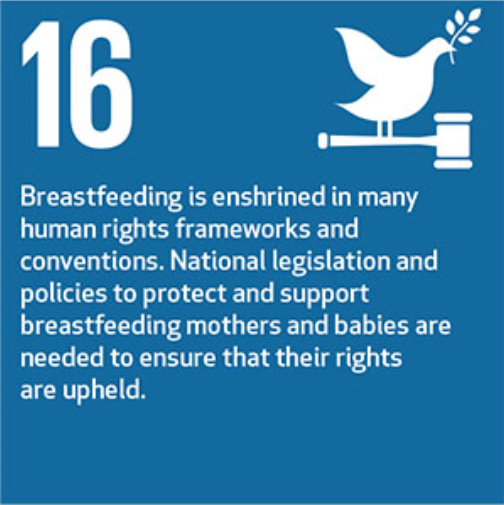
17. Partnerships for sustainable development : The Global Strategy for Infant and Young Child Feeding supports cross-sectoral collaboration and builds on diverse relationships to support development through BF programmes and initiatives.
